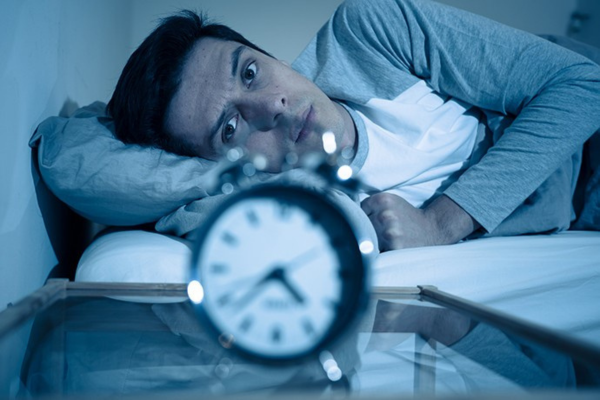
Why You Can’t Sleep: Real Causes of Insomnia & What Actually Works
What Is Insomnia – and Why It’s More Common Than You Think
Insomnia is the most common sleep disorder, but it’s far from simple. People of all ages – from teenagers to busy professionals and the elderly – are struggling to fall asleep, stay asleep, or get restful sleep.
At its core, insomnia is the inability to fall asleep, stay asleep, or return to sleep after waking up in the middle of the night.
It’s Not Just About Sleep – It Affects Your Whole Life
- People with insomnia often report:
- Feeling constantly tired
- Losing focus or concentration
- Poor memory
- Irritability and mood swings
- Trouble completing daily tasks
Most importantly, insomnia negatively affects your mood, decision-making, and overall mental health.
Causes of Insomnia: It’s Not Just Stress
- Mental Stress and Overthinking
Stress is the #1 cause of insomnia. Whether it’s about work, relationships, or finances, an overactive mind at night can make it impossible to relax.
Example: You lie in bed thinking about tomorrow’s meeting or replaying arguments in your head.
- Medical and Psychological Conditions
Chronic pain (like back pain or arthritis)
Depression or anxiety disorders
Hormonal imbalances
Side effects of medications
Alcohol, caffeine, or nicotine use
Example: Someone with depression may feel tired all day but still be unable to sleep at night.
- Lifestyle Habits That Wreck Your Sleep
Using smartphones, tablets, or laptops in bed (blue light suppresses melatonin)
Drinking coffee or tea late in the day
Exercising too close to bedtime
Heavy meals at night
Example: You scroll Instagram at 2 AM and wonder why you can’t sleep.
- Environmental & Circadian Disruptions
Night shifts, jet lag, or frequently changing sleep schedules
Noisy bedroom or uncomfortable mattress
Solutions: How to Actually Fix Your Sleep
- Practice Good Sleep Hygiene
Sleep and wake up at the same time every day
Keep your bedroom dark, cool, and quiet
Avoid working, eating, or watching videos in bed
Tip: Your bed should only be for sleep and intimacy – not for scrolling or working.
- Try Cognitive Behavioral Therapy for Insomnia (CBT-I)
This is a scientifically proven treatment that helps you:
Challenge negative thoughts about sleep
Create healthy bedtime habits
Limit time spent lying awake in bed
Example: Instead of lying awake for hours, you learn to get up, do something calming, and return to bed when sleepy.
- Turn Off Screens Before Bed
Stop using phones, laptops, or watching TV at least 1 hour before bed.
- Use Relaxation Techniques
Deep breathing or progressive muscle relaxation
Light stretching
Listening to soothing music
Try inhaling for 4 seconds, holding for 7, and exhaling for 8 seconds – it’s proven to activate sleep pathways.
- Don’t Force It – Get Out of Bed
If you can’t sleep after 20-30 minutes, get up and do something quiet (like reading a book) instead of tossing and turning.
For Short-Term Insomnia: Do Less, Not More
If insomnia is due to short-term stress:
Don’t oversleep the next day
Avoid naps
Let your body reset naturally
Final Thoughts: Sleep Is a Skill – And You Can Learn It
Insomnia doesn’t have to control your life. With small but consistent changes, you can retrain your body and mind to sleep well again.
Avoid over-the-counter sleep pills unless prescribed, and seek help from a psychologist or sleep therapist if insomnia persists beyond a few weeks.
